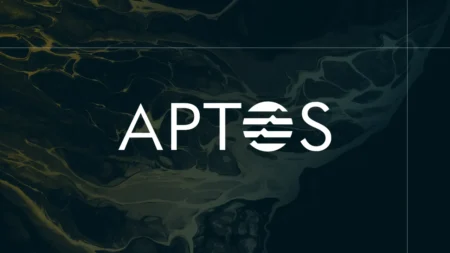If you’re thinking about becoming a bank teller at Wells Fargo or are just curious about the salary, it’s important to understand the full picture. This guide covers how much you can expect to earn, what factors affect the pay, and the benefits, and what’s beyond the paycheck.
The Average Salary for Wells Fargo Bank Tellers
As of October 2024, the average salary for a Wells Fargo bank teller is around $45,000 annually, or around $21-$22 per hour. The salary typically ranges between $36,000 and $47,000, with variations depending on location, experience, and performance. Compared to the national average for bank tellers, Wells Fargo is giving competitive pay, especially for an entry-level position in the financial sector.
Wells Fargo Teller Hourly Wage Breakdown

Bank tellers at Wells Fargo typically earn between $17 and $22 per hour. For entry-level tellers starting their career, hourly wages usually hover around $13 to $17. As you gain more experience and demonstrate solid performance, you can expect your pay to rise. In high-cost areas like New York City or San Francisco, those numbers can climb even higher, reaching over $20 per hour.
Wells Fargo also offers extra pay through shift differentials. This means if you’re working non-standard hours—like nights, weekends, or holidays—you may earn extra on top of your base hourly wage. And don’t forget, performance-based bonuses are also a possibility, meaning the harder you work, the more you could take home.
What Determines the Salary Range?
Not every Wells Fargo teller is making the same amount. So, what exactly determines where you fall in the range? There are a few key factors involved in it:
- Location: A bank teller in San Francisco can make more than one in a small town due to the higher living cost of living. If you’re working in major urban centers such as New York, Los Angeles, or Seattle—you’ll probably be on the upper end of the salary scale. It’s not something unusual for tellers to start at $45,000 or more per year in these areas.
- Experience: Without any doubt and surprise, experience plays a big role. A teller with 5+ years at the company can expect a good increase in their pay compared to someone who just started working. Some tellers with significant tenure and great performance can even earn well over $50,000 annually. For example, someone working in the Miami branch for 10–14 years is likely to get paid between $39,000 and $45,000.
- Branch Performance: Some branches handle more transactions or lean toward wealthier clients, and it results in higher profitability. Tellers in these branches may earn more through bonuses or higher base pay.
- Full-Time vs. Part-Time: Wells Fargo offers both full-time and part-time teller positions. Full-time employees, of course, earn more as they work extra hours, but part-time jobs are not that bad in this bank and they can give workers a competitive hourly wage. It’s quite appealing to students or anyone who has other works to do and need a flexible schedule.
Benefits: More Than Just the Salary

While more than $40,000 a year is a decent starting point, the extra perks that Wells Fargo offers make the overall compensation package even more attractive:
- Health Insurance: One standout benefit at Wells Fargo is health insurance. It’s offered even to part-time employees, with lower premiums for less-earning people. It’s a tiered system designed to make healthcare more affordable for entry-level workers.
- 401(k) Matching: Wells Fargo offers up to a 6% match on employee 401(k) contributions, which is higher than many other financial institutions.
- Paid Time Off (PTO): Everyone needs a break, and Wells Fargo understands that. Full-time tellers receive paid time off (including vacation days, sick leave, and holidays). Depending on your tenure, you can earn between 10 to 20 days of PTO annually, which increases as you spend more time with the company.
- Tuition Assistance: Wells Fargo also invests in your long-term development through its tuition assistance program. If you’re pursuing higher education or specific certifications related to your job, Wells Fargo can help cover some of the costs.
Career Growth and Development Opportunities
A key part of working as a Wells Fargo teller is the potential for career advancement. Unlike many new jobs, the bank provides a clear path to promotion. Wells Fargo encourages internal promotion, and many tellers move into more senior positions within the bank. For example:
- Senior Tellers or Supervisors: As tellers gain experience, they can start working as supervisors by moving to higher positions, where hourly pay typically increases to between $17 and $22 per hour. In these roles, you’ll have the opportunity to lead a team of tellers and take on more responsibility.
- Branch Management: Branch managers oversee all operations of their location, manage staff, and handle higher-level client services. Salaries for branch managers range from $50,000 to $70,000 per year, depending on the size and complexity of the branch.
Wells Fargo also encourages internal growth through development programs and on-the-job training, meaning you don’t have to stay a teller forever.
Is Being a Wells Fargo Teller Worth It?
So, is it worth applying to become a teller at Wells Fargo? If you’re looking for a stable, entry-level position in finance with good pay, excellent benefits, and growth opportunities, Wells Fargo is a strong option. The average salary might not make you rich, but it’s competitive, especially when you factor in the health benefits and 401(k) match.
For anyone looking to climb the ladder, starting as a teller can be a foot in the door to bigger roles with higher pay. The skills you gain, such as customer service, cash handling, and financial literacy, are highly transferable, making this role an excellent stepping stone to other careers in banking or finance. Be it stability or a starting point for your banking career, Wells Fargo provides a strong foundation for future success.
In short: If you’re ready to start a career in banking, this US bank could be the right place to begin your journey.
Disclaimer
The information provided in this article is only for educational and informational purposes and should not be considered financial or investment advice. We are not licensed financial advisors. Always conduct your research and seek guidance from a certified financial professional before making any investment decisions.






